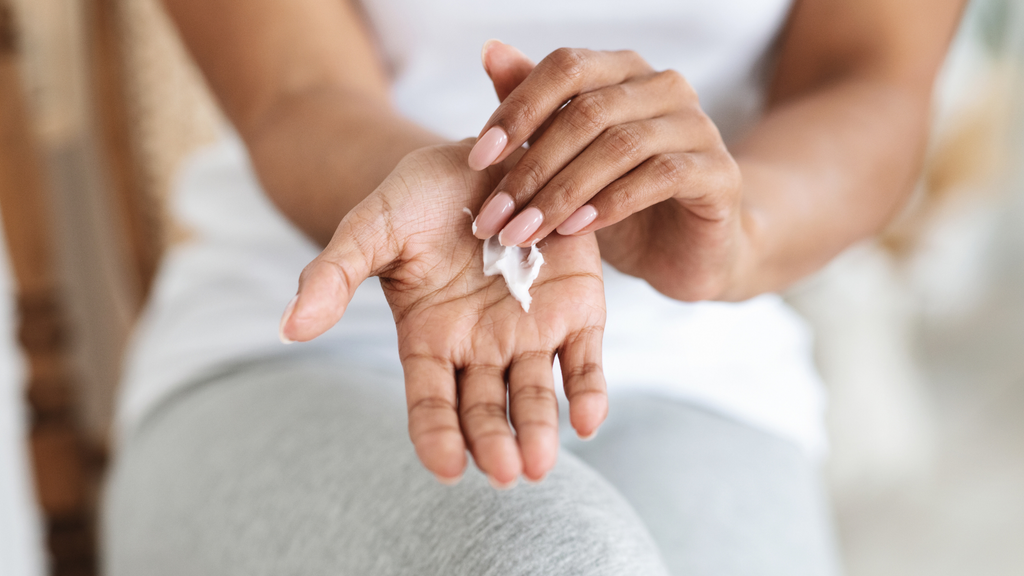Psoriasis Winter Toolkit Tips
11 Nov 20

The cold, freezing weather we experience around different parts of the world can be striking for us living with psoriasis. My psoriasis tends to get worse when the weather changes to cooler temperatures. Cold is harsh on psoriasis because it dries out the skin more than you may experience in the summer. The side effects of winter on our disease are more flakes, itchiness, cracking of the skin, bleeding, and joint pain.
Although winter can bring more challenging times for those of us living with psoriasis, there are steps you can follow to make your psoriasis more manageable and decrease the negative impact of cold weather. I have put together a "Psoriasis Winter Toolkit." These are seven of the most important items or tips I utilize to manage my psoriasis effectively during winter. Be sure to talk to your doctor before trying these tips.
Epsom Salt, Essential Oils, and Luke-Warm Baths
Psoriasis can cause flaky patches of dry, rough skin. Epsom salt is a natural exfoliate that can be used to loosen scales and promote smoother skin. In a standard bathtub, add 2 cups of Epsom salt to a luke-warm bath with an essential oil mixed with a carrier oil such as lavender and coconut. Rub the water over your body for the best results. The minerals from the salt will help to soothe the skin by decreasing inflammation of the skin, and the oil will provide deep moisture.
Keep Your Skin Moisturized
Prosoria, an over-the-counter treatment system for psoriasis is your one-stop-shop for dry and flaky skin relief. After you take your bath, apply Prosoria. This treatment system will help to maintain the moisture in your skin, eliminate the itchiness, and decrease inflammation caused by psoriasis. Apply Prosoria psoriasis treatment system just once daily each morning. You can apply the Prosoria exfoliating and moisturizing ointment each night to speed results and restore skin. For an extra boost, place your Prosoria in the refrigerator. Creams that are chilled feel cool on the skin and can help soothe the itching you may experience.
Keep Your Space Moisturized
Cold weather can cause the air in the house to be very dry, negatively impacting the skin. A humidifier works to establish moisture in the air, which results in better health for your skin. Most humidifiers require a couple of gallons of water and should only run 12-16 hours a day.
Treat Psoriasis from the Inside Out
Vitamins and supplements can help your condition from the inside and provide essential nutrients to your body. One of my favorites to use is turmeric. Turmeric has amazing properties, one of which is promoting healthy skin. Taking turmeric consistently can help eliminate the inflammation and pain caused by psoriasis. You should try Nuvothera’s Super-Micronized Turmeric supplement for the best results.
Alternate Between Hot and Cold Packs
Cold weather can cause joint pain and increase dry and cracking skin, which can be very painful. You can alternate between heat and cold packs to soothe the pain. Place the cold pack in the area of pain for 20-30 mins, then immediately follow up with a heat pack for the same amount of time.
Drink Plenty of Water
Drinking 8 glasses of water a day will help keep the skin hydrated, lowering your itchy dry skin challenges. Some people living with psoriasis have even shared their disease seems to heal faster when having a high-water intake.
Engage in Self-Care
Not only may you be dealing with depression or emotional distress due to psoriasis, winter is typically a time where people also deal with seasoning depression. A combination of the two can severely impact the quality of life and isolation from others. Be sure to choose winter activities such as scrapbooking with friends, movie nights, or bond fires with friends and roasted marshmallows. Self-care keeps me sane during crazy times.
Written by Alisha M. Bridges. Alisha has lived and thrived with psoriatic disease for over two decades. She is a blogger and health advocate who strives to inspire others with her story of living with a chronic condition. She shares insights and helpful tips from her experiences and holistic approaches to help manage her chronic condition.

